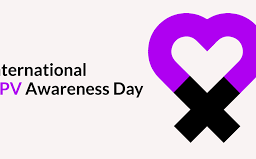
Starve a Fever, Feed a Cold: Fact or Fiction?
Exploring the age-old advice of “starve a fever, feed a cold” unveils a mix of myth and reality. Delve into the science behind this saying and uncover whether it holds any truth when it comes to managing colds and fevers.

There’s an old saying that goes, “Starve a fever, feed a cold.” But is there any truth to this age-old adage? In this post, we’ll explore the origins of this saying, what science has to say about it, and whether or not you should follow this advice the next time you’re feeling under the weather.
The Origins of “Starve a Fever, Feed a Cold”
The origins of this saying can be traced back to the 16th century. At that time, people believed that fevers were caused by an excess of heat in the body. To combat this, they would fast or “starve” themselves in order to cool down their body temperature. On the other hand, they believed that colds were caused by a lack of heat in the body. To combat this, they would eat and “feed” themselves in order to warm up their body temperature.
What Science Has to Say About It
While the idea of “starving” a fever and “feeding” a cold may have made sense in the 16th century, modern science tells us that it’s not quite that simple. In fact, both fevers and colds are caused by viruses, and the best way to combat them is by supporting your immune system with proper nutrition and hydration.
The Importance of Proper Nutrition
When you’re sick, your body needs extra nutrients to help fight off infection. This is especially true if you have a fever, as your body is working overtime to raise your body temperature in order to kill off the virus. Eating nutrient-rich foods such as fruits, vegetables, whole grains, and lean proteins can help provide your body with the energy and nutrients it needs to fight off infection.
The Role of Hydration
In addition to proper nutrition, hydration is also key when you’re sick. Drinking plenty of fluids such as water, herbal tea, and broth can help keep your body hydrated and flush out toxins. This is especially important if you have a fever, as your body loses more fluids through sweating.
Why “Starving” Yourself Can Be Harmful
While it may seem like a good idea to “starve” yourself when you have a fever, this can actually be harmful to your body. When you don’t eat enough, your body doesn’t have the energy it needs to fight off infection. This can weaken your immune system and make it harder for your body to recover.
Why “Feeding” Yourself Can Be Beneficial
On the other hand, eating nutrient-rich foods when you have a cold can be beneficial for several reasons. First, it can help provide your body with the energy and nutrients it needs to fight off infection. Second, certain foods such as chicken soup and garlic have been shown to have immune-boosting properties that can help support your body’s natural defenses.
How to Support Your Immune System
In addition to proper nutrition and hydration, there are several other things you can do to support your immune system when you’re sick. Getting plenty of rest, reducing stress, and avoiding alcohol and tobacco can all help give your body the best chance of fighting off infection.
When to See a Doctor
While most fevers and colds will go away on their own with proper care, there are times when you should see a doctor. If your fever is very high (above 103°F), lasts for more than a few days, or is accompanied by other symptoms such as severe headache or difficulty breathing, you should seek medical attention. Similarly, if your cold symptoms persist for more than a week or are accompanied by severe symptoms such as chest pain or difficulty breathing, you should see a doctor.
In conclusion, the old saying “starve a fever, feed a cold” is not entirely accurate. While proper nutrition and hydration are important for both fevers and colds, “starving” yourself when you have a fever can actually be harmful to your body. Instead, focus on eating nutrient-rich foods and drinking plenty of fluids to support your immune system and help your body fight off infection. And if your symptoms persist or are severe, don’t hesitate to see a doctor.
Disclaimer: The information provided in this content is for general informational purposes only. It is not intended as medical or healthcare advice, diagnosis, or treatment. Always seek the advice of a qualified healthcare professional with any questions you may have regarding a medical condition or healthcare decisions.
















